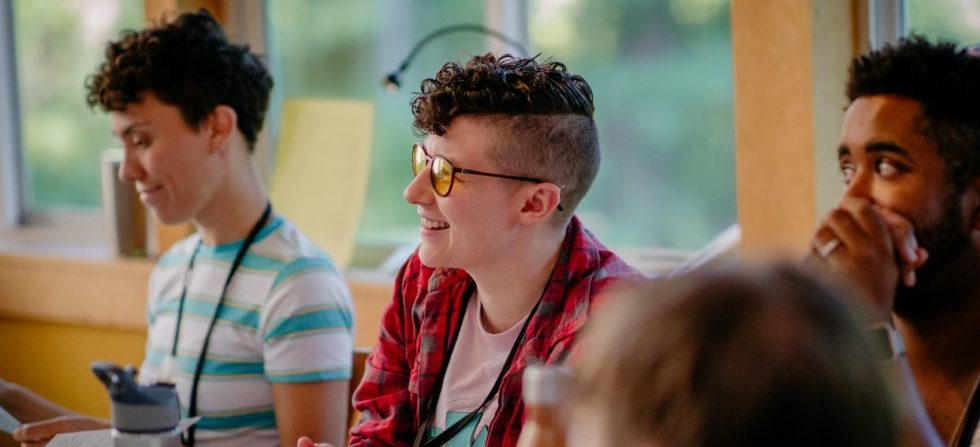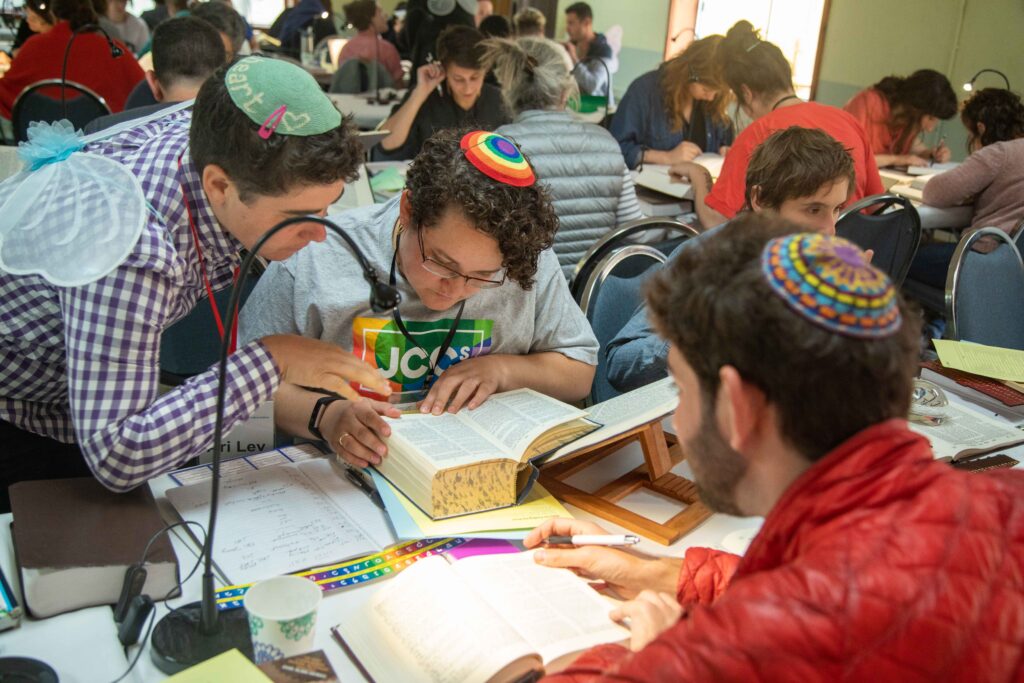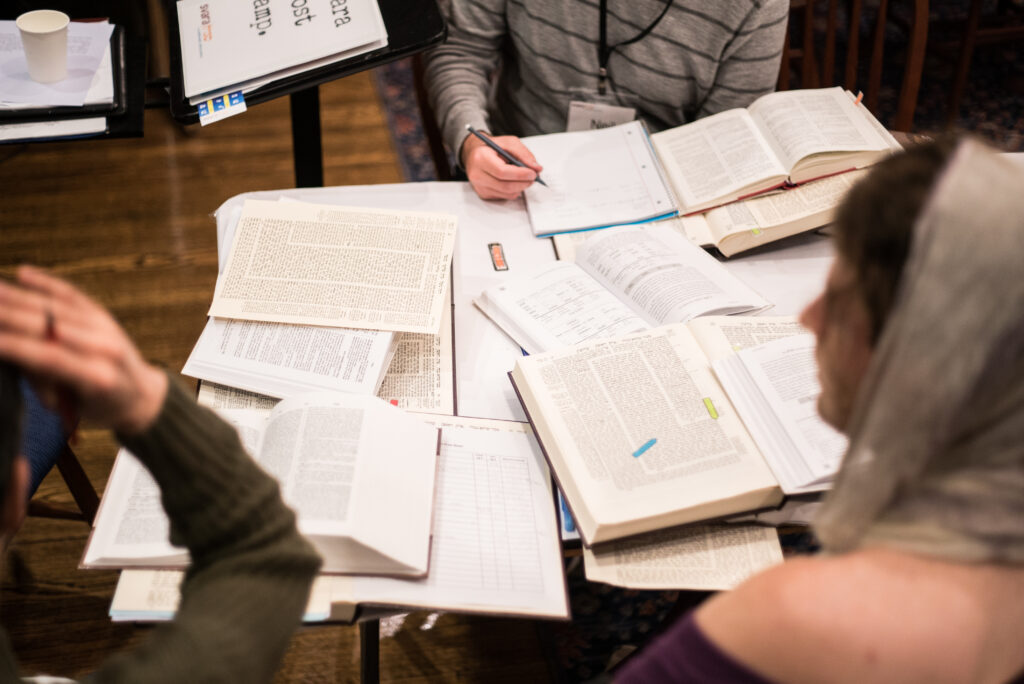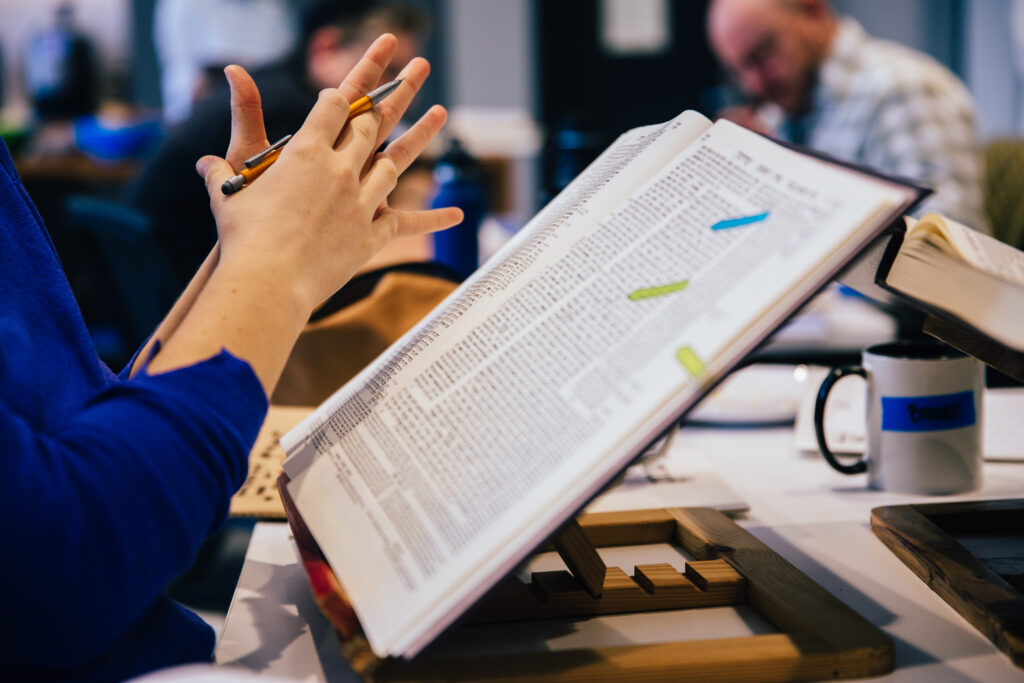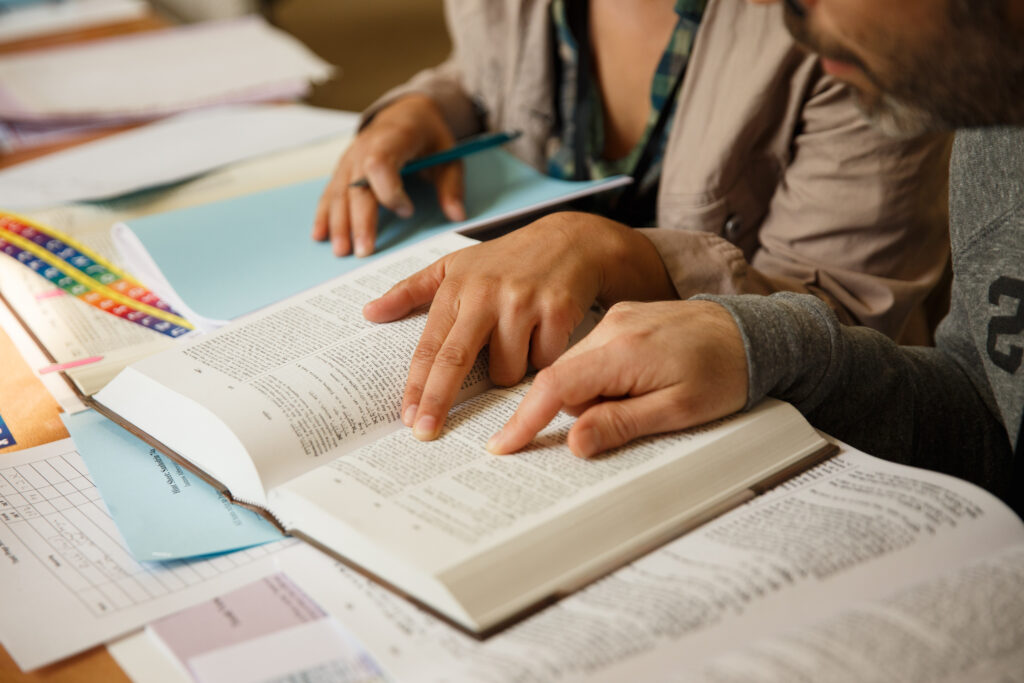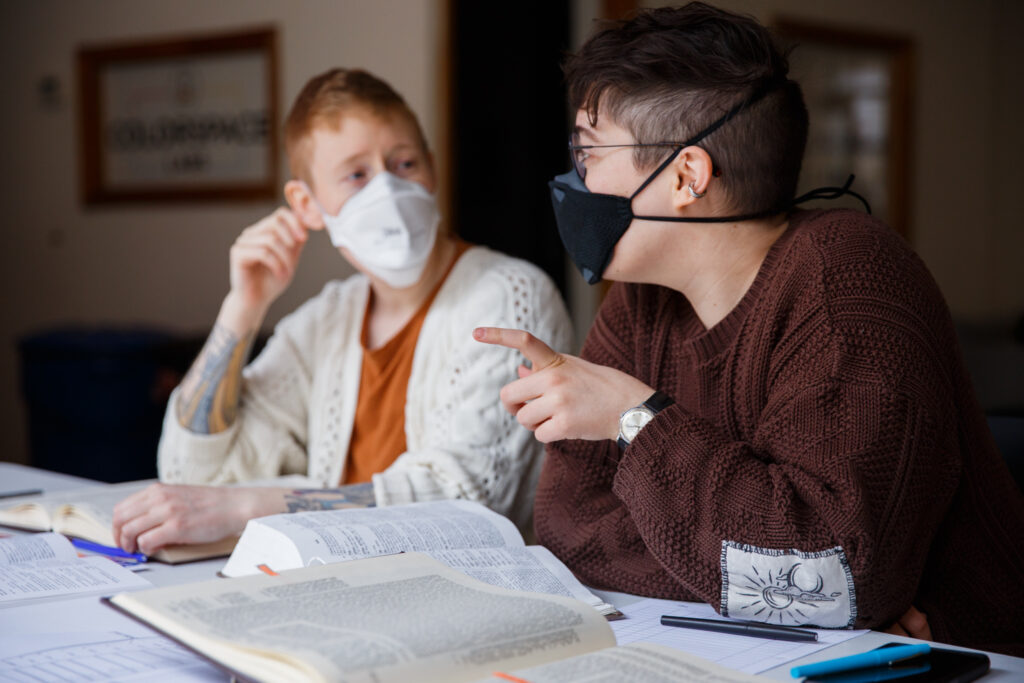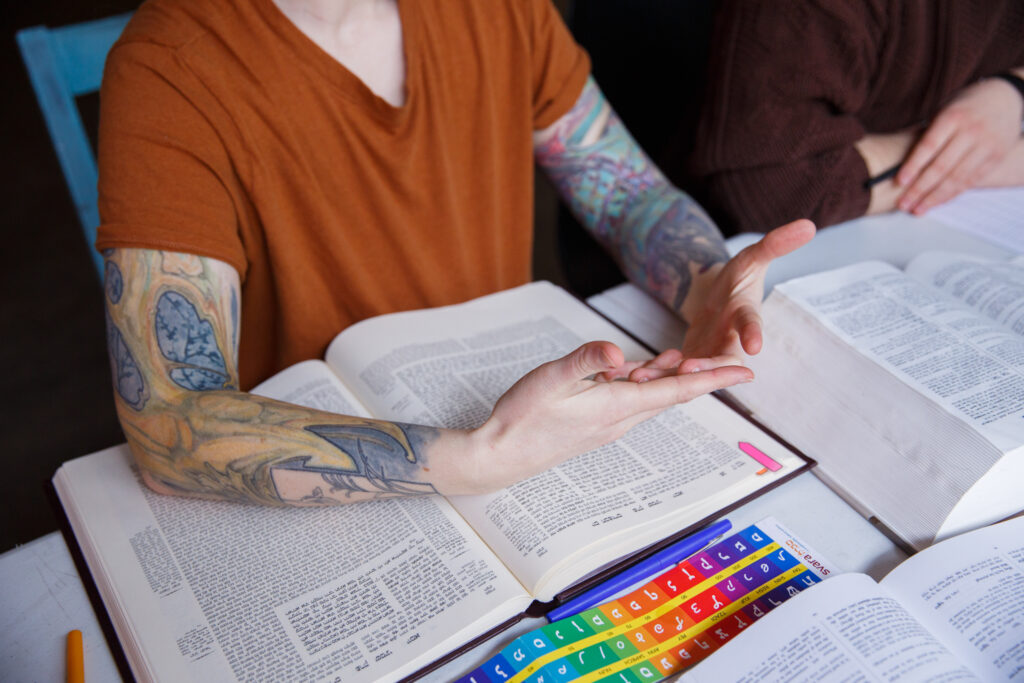Last week I watched the Netflix film Disclosure. I’m never going to be the same.
It’s a documentary about trans representation in film and media. Only trans people appear on screen—which is revolutionary in and of itself—but as I watched it, and listened to each of the artists on the screen speaking, something else became almost immediately obvious to me—the people they were talking to, off-camera, the interviewers whose voices and questions and responses you never hear, were also trans. Even as a cis (though queer) person watching it, I recognized in the way the folks on screen spoke—not only what they said but how they said it—that they were speaking to people offscreen who got it. It was apparent in the laughter that was shorthand for the words they didn’t need to say, in the tears that didn’t need to be justified, in the fragments of sentences that didn’t need to be finished, in the insider language that no one bothered to explain for any one else’s benefit.
There was incredible power in the profound insights the artists shared precisely because none of it was translated. It wasn’t diminished by the need to make it palatable to someone who didn’t understand it viscerally. It didn’t have to shrink to fit into someone else’s frame of reference, or become more tame than someone else might be able to tolerate. What was radical to me about that documentary wasn’t merely who was speaking, but who they were speaking to. They were speaking to each other. And the truths that surface when we, people with marginalized experiences, speak to each other, are revolutionary. Because we cannot even know the fullest truth of our own lives until we turn them over, and over again, with each other, with other folks who know, deeply, and with their lived life experiences, what we’re talking about, who understand pieces of it better than we do, and who need us to understand other pieces better than they do. And it is only in the not-translating that its full power can be surfaced.
There is a passage in the Talmud (Sanhedrin 17a) in which the Rabbis ask the question: what are the qualifications necessary in a judge who will be appointed to the high court, the Sanhedrin, which adjudicates capital cases and makes determinations of life and death? What would someone deciding life-or-death matters have to know, what would they have to be like, for us to feel that they were most able to carry out justice? The Rabbis know that justice can only be created out of a space in which justice is embodied and experienced. So what they’re really asking is: what would a just space, a space that created justice in the world, look like?
Two Rabbis, Rabbi Yochanan and Rav Yehuda, debate the question. Rabbi Yochanan says that one of the things that this space would need to have is…no translation! That is, all 23 judges sitting on the court, he says, would have to know “all 70 languages,” code for every existing spoken language. Why? He explains:
שלא תהא סנהדרי שומעת מפי המתורגמן
“…so that the court won’t have to hear [testimony] from the mouth of a translator.”
I.e., so that no defendant or witness would ever need a translator to have their testimony heard by the judges. Each judge would need to hear and understand the untranslated experience of every defendant and every witness. Rabbi Yochanan understands that there is truth that cannot be translated. There is power in the unmediated experience, in the communication between people who don’t need their words and experiences shaped into something that will conform to another person’s frame of reference.
It is one tiny move toward operationalizing a vision of radical empathy, where those whose marginalized experience is recognized as precious and crucial must be surfaced and communicated in all of its messiness and simultaneous fragmentariness and fullness, in all of its radical truth, and which will land not only in the mind but in the heart of the listener, because they “speak the same language.” It is the aspiration of ultimate queer space–whatever the queerness. And it is one of the many reasons why “inclusion” will never bring the revolution (but don’t get me started. I’ll leave that for another essay).
The Talmud is so powerful because it’s a bunch of queer, fringy, radical folks talking to other queer, fringy, radical folks. Learning Talmud is being in “the room where it happens,” where the Rabbis let you in on and train you up in the radicalness of their—and what they hope will be your—project, and so they don’t feel the need to camouflage how they’re doing it! It was obvious to the Rabbis how profoundly they were bringing their svara, their moral intuition, to bear, to radically transform the Torah and the worldview they inherited. And they meant for us to see it as well.
At SVARA, that’s the Talmud we learn, and we learn it, always, in the original. We never learn from someone else’s translation. Ever. Even those who come with just their alef-bet are learning in the original Hebrew/Aramaic from the first hour. Learning this way creates a visceral body-understanding of the queer experience the Rabbis in the Talmud are trying to share with us. We don’t ask them to speak to us “from the mouth of a translator.” And the power of their message is felt in all of its bold, courageous radicalness.
At SVARA right now, we’re all excitedly planning this year’s Queer Talmud Camp: Diaspora Edition. And if you were to ask me: Why sit and learn Talmud while the world is on fire? Why come to Queer Talmud Camp this summer, in the online diaspora no less, when so much work needs to be done out there, let me tell you a story:
A couple of years ago, a group of young trans and queer activists from Pittsburgh, who learned Torah together in a weekly Queer Parsha Study group there, applied, all together, to Queer Talmud Camp. None of them had ever learned with SVARA before, and in answering the question “Why do you want to come to Queer Talmud Camp?” on their application, one of them wrote on behalf of the group: “We, as a chosen family, want to make a pilgrimage together to be with our people, our Queer Jewish community, our larger family.”
Queer folk flock to Camp to live, for five days, an untranslated life. It is an aliyat ha’regel, a sacred pilgrimage. It is what pilgrimage has always been about. To quote Wikipedia’s definition, a pilgrimage is “a journey or search of moral or spiritual significance, often into an unknown or foreign place, where a person goes in search of new or expanded meaning about their self, others, nature, or a higher good, through that experience, which can lead to a personal transformation, after which the pilgrim returns to their daily life.” For some of us, that unknown or foreign place is our own untranslated lives, finally experienced, with one another. But, I would add, not only for personal transformation, but in order to create an aspirational untranslated world.
In Disclosure, film producer Yance Ford quotes Marian Wright Edelman, who said: “Children cannot be what they cannot see…and it’s not just about children. It’s about all of us. We cannot be that better society until we see that better society. I cannot be in the world until I see that I am in the world.” So many of us who are queer and have grown up and live in profoundly not-queer cultures, have struggled very hard to be something that we have never seen and can’t name. We know what it feels like to have to piece together a world we can live in. And we know what it feels like to find refuge in places where we can, rarely and preciously, find ourselves reflected in the people around us.
I started SVARA because I wanted a place where queer folk could be with each other in that way. Where I could be with other queer folk in that way—-where we could talk without translating, dream wild dreams without being laughed at, sit in a room full of glittery fabulous people letting their freak flags fly, don fairy wings if we wanted to, wear tool belts low on our hips holstering nerdy Talmud dictionaries, and create the worlds that only we could create.
And once you feel what that feels like, and you do create worlds that only you and those other folks like you—like you in some profound way, though different in so many others—could have created, you realize that there are so many worlds that need yet to be created.
There is unspeakable power in the eventual sharing out of our untranslated experience. But we need more spaces where we can, first, come together with our people, whoever our people are, to process our lives, to witness and support one another, to learn and create Torah in our own communities without having to translate the core elements of who we are. To find the “donkey stories” that only we can see. It is liberatory. And it is also revolutionary, because once you experience it, you realize that it isn’t enough that you’re able to live out your full, fabulous, untranslated self. You realize that everybody needs to be able to live out their full, fabulous untranslated selves, too, and that becomes your commitment, because you understand, then, that my liberation is tied up in yours. And the revolution has to start there. It is the necessary first step after which (or maybe even alternatingly), we will be able to come together from a place of greater strength, confidence, humility, clarity, with a deeper understanding of ourselves and the torah we have to bring, and the ability to hear one another’s truths, to then make our own even bigger.
So many of us are fighting right now for a world where all people can be free and safe. A world in which Trans Black women are no longer targeted by state violence. A world in which Black Lives Matter. A world where all people can access testing and healthcare during this global health crisis. A world where stimulus checks are redistributed to undocumented immigrants. A world where Palestinian lives are valued as much as Jewish lives. A world where disabled people’s access needs and wisdom are honored and met. And the list goes on.
As we take action, from our homes and in the streets, to create this world, I also want to invite you to Camp this summer. I want to invite you to make an aliyat ha’regel, a sacred pilgrimage, to remember with us what it feels like to spend time immersed in a space with other Queer folks who know, deeply, and with their lived life experiences, what you’re talking about. Who get you. Maybe not all the parts of you, or every part of you, but the parts you too often have to explain and translate to other people in the world. Immersive sacred Queer space is just too precious and liberatory to surrender. We can’t do it in person this year, but we invite you to create it together with us while we are spread across the Jewish and Queer diaspora, from our homes.
We’ll all be there, joyful, vibrantly alive, fabulous. And untranslated.

